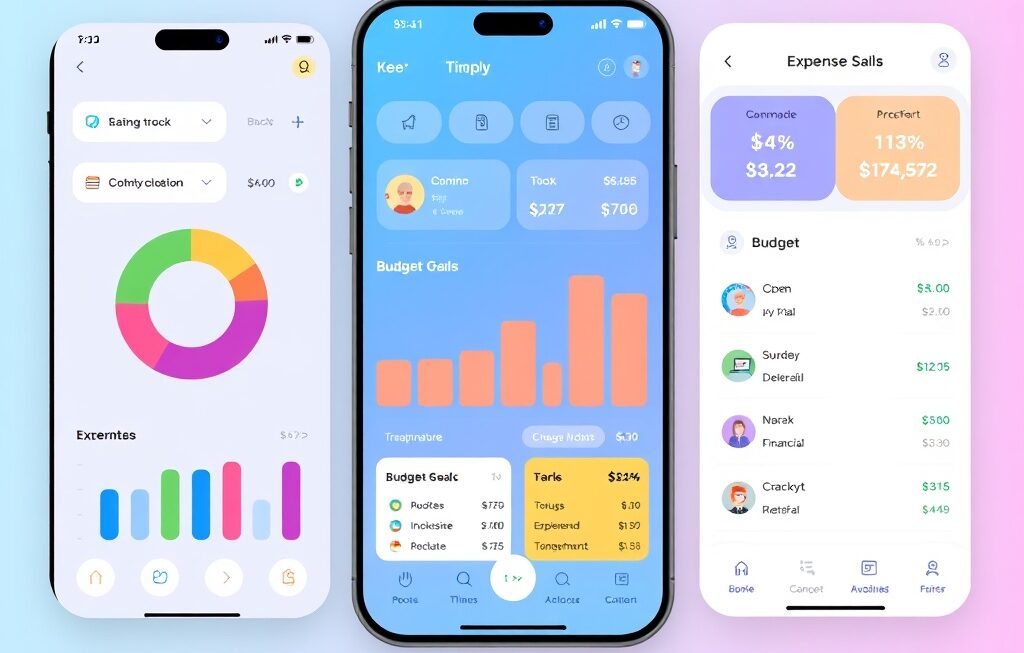Managing expenses effectively is a cornerstone of financial well-being. Many people assume that saving money requires major sacrifices, but in reality, it is possible to reduce monthly expenses effectively while still enjoying a comfortable and fulfilling life.
In 2025, with rising costs, inflation fluctuations, and evolving consumer habits, being strategic about spending has become more important than ever. And By adopting thoughtful money-saving habits, optimizing recurring costs, and leveraging technology, you can keep your finances healthy without feeling deprived.
This article provides practical strategies and actionable tips to help you lower monthly expenses while maintaining — and even enhancing — your quality of life.
Track Your Expenses Carefully
Before reducing expenses, it’s essential to understand where your money goes. Tracking spending helps identify unnecessary costs and patterns that may be draining your budget.
How to Track Expenses Effectively:
- Use budgeting apps like Mint, YNAB, or PocketGuard.
- Review bank and credit card statements monthly.
- Categorize spending into essentials, non-essentials, and discretionary.
- Identify recurring subscriptions that may no longer be necessary.
Tracking your expenses provides clarity and helps pinpoint areas where reductions are possible without affecting your lifestyle significantly.
Optimize Recurring Bills
Recurring bills are often overlooked but can represent a significant portion of monthly expenses. Small adjustments can lead to substantial savings over time.
Strategies to Reduce Monthly Bills:
- Utilities: Switch to energy-efficient appliances, monitor electricity usage, and negotiate rates with providers.
- Internet and Phone Plans: Compare plans annually; bundling services may save money.
- Subscriptions: Cancel unused or underutilized services like streaming platforms or apps.
- Insurance: Review policies yearly to ensure you’re not overpaying; consider bundling auto, home, and health coverage.
Even small reductions can save hundreds annually without impacting your lifestyle.
Meal Planning and Smart Grocery Shopping
Food expenses are a major part of monthly spending. By being strategic, you can lower costs without compromising nutrition or taste.
Tips for Smart Grocery Management:
- Plan meals weekly and make a shopping list to avoid impulse purchases.
- Buy in bulk for non-perishable items or staple foods.
- Use store loyalty programs and digital coupons.
- Cook at home more often; restaurant meals are typically more expensive.
- Reduce food waste by properly storing leftovers and monitoring expiration dates.
Meal planning not only reduces spending but can also improve health and overall lifestyle.
Embrace Minimalism and Conscious Spending
Adopting minimalism doesn’t mean deprivation — it’s about prioritizing what adds value to your life.
Practical Applications:
- Evaluate purchases: ask if an item meaningfully improves your life before buying.
- Avoid impulsive spending influenced by trends or peers.
- Invest in high-quality items that last longer rather than cheap alternatives.
Conscious spending aligns financial goals with your lifestyle while reducing unnecessary expenses.
Transportation Savings
Transportation is another area where careful planning can reduce costs significantly.
Ways to Save on Transportation:
- Use public transportation or carpool when possible.
- Maintain your vehicle regularly to avoid costly repairs.
- Compare fuel prices and use apps to find the cheapest stations.
- Consider biking or walking for short trips to save on gas and promote health.
Reducing transportation costs contributes to monthly savings while maintaining convenience.
Leverage Technology for Cost Reduction
Modern technology offers numerous tools to help manage expenses and optimize spending habits.
Recommended Tools:
- Budgeting Apps: Track, categorize, and analyze spending.
- Cashback and Rewards Apps: Platforms like Rakuten or Honey provide discounts and cashback.
- Price Comparison Tools: Apps like Google Shopping help find the best deals.
- Automated Savings: Set up recurring transfers to savings accounts to “pay yourself first.”
Technology can reduce expenses effortlessly without altering daily routines.
Reduce Energy and Household Costs
Household expenses are often controllable through small adjustments and investments.
Tips for Lowering Household Costs:
- Switch to LED lighting and energy-efficient appliances.
- Properly insulate your home to reduce heating and cooling expenses.
- Set thermostats strategically.
- Unplug electronics not in use to avoid “phantom energy” consumption.
Small changes lead to meaningful savings while improving comfort and sustainability.
Entertainment and Leisure on a Budget
Reducing expenses doesn’t mean eliminating fun. Entertainment can be affordable when approached creatively.
Affordable Entertainment Ideas:
- Attend free or low-cost community events.
- Use library resources for books, movies, and programs.
- Plan “staycations” or outdoor activities instead of costly trips.
- Use subscription sharing or family plans for streaming services.
Rethinking leisure spending maintains life quality without overspending.
Mindful Credit and Debt Management: Reducing Monthly Expenses
High-interest debt can undermine budgeting efforts. Managing credit effectively reduces financial strain.
Strategies:
- Pay off high-interest debts first.
- Avoid unnecessary new debt.
- Use balance transfers or refinancing when beneficial.
- Monitor credit card statements to prevent unnoticed charges.
Effective debt management enhances long-term financial health.
Automate, Monitor, and Adjust: Reducing Monthly Expenses
Reducing expenses is an ongoing process. Regularly reviewing your budget ensures sustainable savings.
- Set alerts for unusual spending.
- Review subscriptions quarterly.
- Track progress toward financial goals and celebrate milestones.
- Adjust your spending plan as income or priorities change.
Continuous monitoring aligns your savings efforts with life quality goals.

In Summary: Reducing Monthly Expenses
It’s entirely possible to reduce monthly expenses effectively without sacrificing life quality. By tracking spending, optimizing bills, planning meals, embracing minimalism, and leveraging technology, you can save significantly while maintaining comfort.
Financial discipline doesn’t mean deprivation — it means making intentional choices that support your goals. Mastering these strategies in 2025 builds financial resilience, reduces stress, and creates a life of abundance without overspending.



